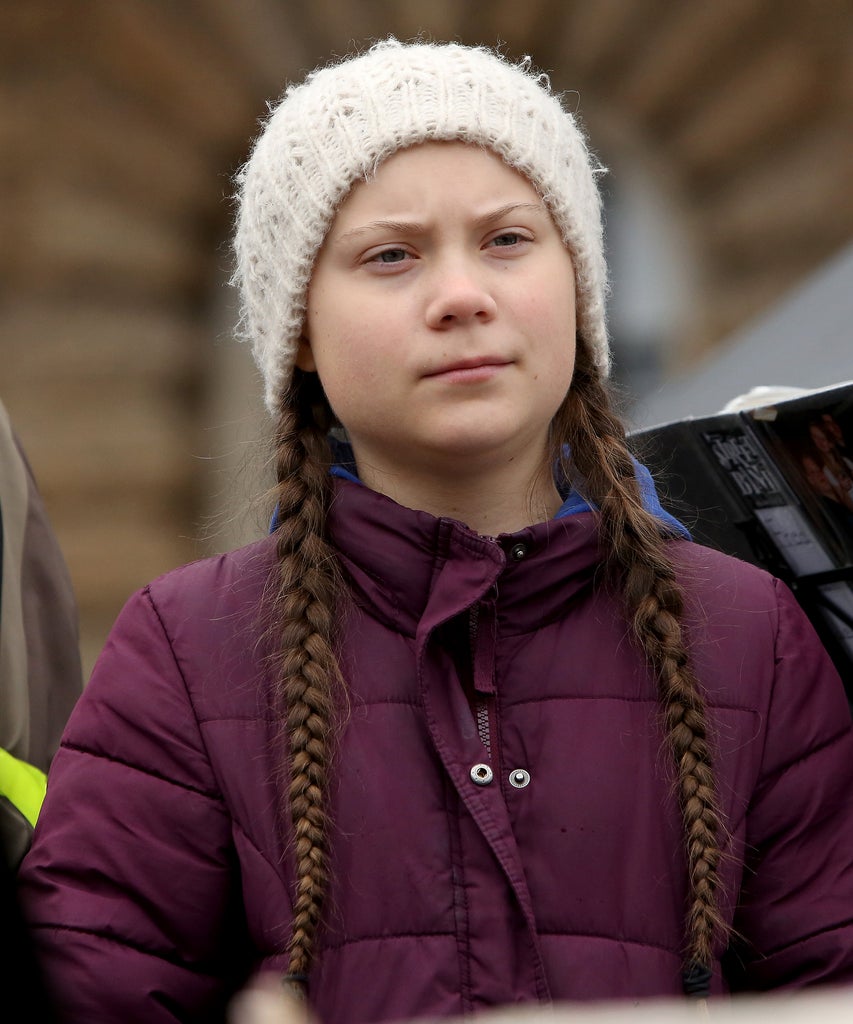
Since she first rose to prominence, 18-year-old climate activist Greta Thunberg has faced (and expertly handled) opposition and harassment from many corners of the internet, including Twitter’s biggest cyberbully and least favorite U.S. president. But in a bizarre turn, figures in India are trying to “expose” Thunberg on Twitter, arguing that she that she and Rihanna (yes, Rihanna) are misrepresenting the ongoing farmer protests throughout the country and pushing a global conspiracy theory.
This week, Thunberg and Rihanna — along with a few other celebrities, including Mia Khalifa — tweeted out links to articles about the current protests in India, which have been ongoing since November. The protests, which are pushing back against recent laws that will strip farm workers of guaranteed wages, have been a point of contention within the country. In an effort to raise awareness, Thunberg shared a Google doc with information about how to help India’s farmers on social media. But she deleted that tweet after supporters of India’s ruling party, the Bharatiya Janata Party, began tweeting #GretaThunbergExposed and questioning the purpose of the document.
“@GretaThunberg has exposed the global conspiracy that she is a part of,” wrote the Republic Media Network, a right-wing news channel in India. “If you read the contents of the Google doc that she shared, it’s clear that there’s an orchestrated, scripted, and well-funded plan to target India, Indian companies, and Indian democracy.”
It should be noted that Republic TV has been accused of spreading false news and bias in favor of the Bharatiya Janata Party. And now, they are falsely implying that Thunberg is at the center of some kind of international plan to attack Indian democracy. Like previous conspiracy theories about Thunberg, this one is wrong.
The protests date back to a series of laws implemented last September. The main takeaway is that, under the new legislation, workers won’t be given guaranteed wages and will instead be allowed to sell their crops to anyone, at any price. The government insists that this will help India’s economy, but farmers argue that the laws will only lower the costs of their goods and leave agriculture workers across the country vulnerable to exploitation.
To fully grasp the magnitude of the problem, it’s important to recognize how many people are impacted by these changes. Not only does the industry make up almost 15% of India’s economy, but 58% of Indians cite agriculture as their family’s primary source of livelihood. The Indian government released a response to Thunberg’s call to action, writing that the protestors represent “a very small section of farmers in parts of India” who simply have “reservations” about the new laws.
“The temptation of sensationalist social media hashtags and comments, especially when resorted to by celebrities and others, is neither accurate nor responsible,” the external affairs ministry wrote on Wednesday.
However, Thunberg isn’t the one presenting inaccurate, irresponsible information. Hundreds of thousands of farmers have participated in the protests; many have camped out around Delhi for months. The government has escalated its attempts to stop the movement by obstructing protestors’ access to food and water and, more recently, shutting down internet access. There have also been concerns about freedom of the press since multiple journalists were detained for purportedly “inciting” the farmers at the border between Delhi and Haryana.
The internet shutdown has especially impacted people in India and drawn national attention to the protests. “I work tirelessly in the day, helping with the arrangements at the protest site,” 25-year-old Harneet Singh told The Guardian. “Normally, a video call in the evening with the family would relieve my stress but the internet shutdown is choking us.”
Critics believe that the aim of the shutdown was to slash communication between farmers from different protest sites, and communication between protestors and the rest of the world. “The government does not want the real facts to reach protesting farmers, nor their peaceful conduct to reach the world,” Darshan Pal said in a statement, according to CNN. Pal is a leader from Samyukta Kisan Morcha, a united front of over 40 farmers’ unions that banded together to protest the new legislation. He added that the government is afraid of different unions contacting each other and teaming up. “Typically, these village groups work together against each other, but this time they have all united for the collective fight.”
The protests came to a head on January 26, also known as India Republic Day. Farmers entered the capital of Delhi and clashed with the police, who reacted with tear gas and batons. The conflict left many protestors and members of law enforcement injured, and Delhi police called it an “anti-national act.”
The reality is, Thunberg hasn’t been exposed as anything other than a staunch activist, and her role in the protests isn’t dissimilar from the role she has played countless times before. She’s using her platform to raise awareness and attract attention to an important movement. And she probably isn’t going to let a hashtag stop her.
Like what you see? How about some more R29 goodness, right here?
Biden Just Signed Three Immigration Reform Bills
Capitol Rioter Wants To Take A Trip To Mexico
Why Is Lindsey Graham Threatening Kamala Harris?
from Refinery29 https://ift.tt/3oSBDE4
via IFTTT
